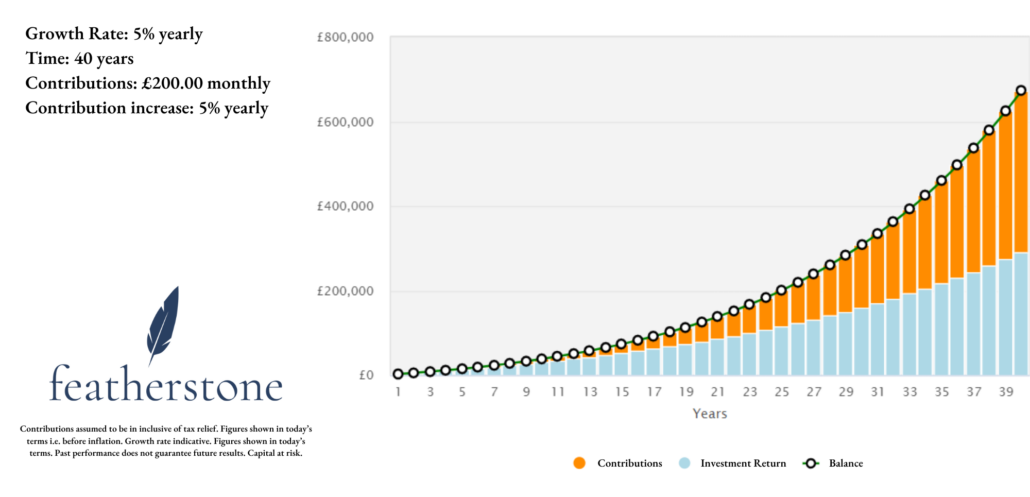Essential Pension Planning Tips For Every Age Group in 2024
Reaching pension age may be far away for some of us, but no matter your age, retirement planning and pension planning are crucial, as the decisions you make now are likely to significantly impact your financial situation in the future.
With so many people feeling in the dark about pension issues, it’s clear that some expert guidance could make a big difference. A recent survey from October 2023 showed “58%” of people reported low pension knowledge confidence, and “28%” admitted they knew little to nothing on the subject.
This is not helped by the extreme complexity of the pension system, which is tricky and time consuming to navigate without specialist advice.
In this article, we will try to improve on this by exploring some key pension planning tips for different age groups. By getting the retirement planning process underway early, you can feel confident that your retirement years will provide a financial foundation to enable a more secure retirement
20-30
Though retirement is a lifetime away in your twenties, (and is not exactly the highest thing on the priority list), starting pension savings early allows the power of compound growth over decades to work for you. Making small, sustained pension contributions now and increasing them where possible, sets your funds up for large growth over time.
Since 2012, it has been compulsory for employers to contribute to pensions for eligible employees, with the minimum combined (employer and employee) pension contribution now being 8% of salary. However, if you can, boosting this contribution to 12% can bolster your pension pot significantly in the long run. It’s especially wise to make the most of any employer pension schemes that offer to match what you pay into your pension yourself, essentially providing you with free money towards your retirement.
Affordability for pension contributions is usually a limiting factor at this stage in life, given the high cost of living and perhaps other more exciting priorities! It is also important to remember that money paid into a pension cannot be accessed before retirement age, which is currently set to increase to age 57 in 2028. This is a key consideration across all age groups.
Pensions are just a form of investment, wrapped in an incredibly tax-efficient vehicle. Investments can offer long-term returns that build wealth when given time and consistent contributions. By using your twenties to create a habit of disciplined investing, those small seeds can grow with compound interest throughout your working life.
This chart illustrates the potential growth for an example scenario:
30-40
In your 30s, earnings rise and life progresses; therefore, this is the ideal time for more focused retirement planning. This period is hugely decisive for your future pension pot, so getting some expert advice is certainly sensible.
It’s crucial to give these key areas a closer look:
- Gradually increase contributions as earnings rise; small increases compound. This is likely to happen automatically under auto-enrolment, but additional contributions can be considered.
- The investment strategy. Often, workplace pension schemes will use a default investment strategy, which may not be suitable. This may also need to be rebalanced periodically to adjust risk exposure as markets shift and as you move closer to retirement.
- Update your plans if your circumstances change or your family grows.
- Ensure that you nominate pension beneficiaries and keep this up-to-date.
- Consolidate old pensions to simplify pension tracking as you change jobs, and to ensure a consistent and coherent investment strategy for your growing pension pot. Costs and flexibility (of investment options and future flexibility for access) will be factors to consider.
40-50
While you may be juggling multiple financial commitments (for example, school fees and mortgage payments), retirement is getting closer, and this is the time to take retirement planning seriously.
It’s crucial to give these key areas a closer look:
Consider your retirement target age and whether you are on track. Professional cashflow planning is incredibly helpful to quantify and visualise progress, factoring in many variables and assumptions.
Make the most of your pension’s annual allowance. The annual allowance is the maximum limit on annual tax relievable pension contributions and is now capped at £60,000 for those with sufficient earned income.
This can be done by making personal pension contributions over and above any pension contributions to workplace pension schemes. Personal pension contributions benefit from tax relief of up to 60%, depending on your tax band. For a higher-rate taxpayer, this means that a gross pension contribution of £20,000 would cost just £12,000 after tax relief.
Look into widening your investments beyond pensions. Explore options like ISAs and investment accounts, which are more flexible and could make use of other available allowances, or property to spread your risk and potential returns. As pensions currently fall outside of your estate for inheritance tax purposes, it may be better to prioritise drawing from other assets ahead of pensions to fund retirement.
Leverage your employee benefits: Make sure to utilise available benefits such as health insurance, share schemes, retirement plans and employee discounts.
50-60
As you approach retirement, it is important to evaluate your financial strategy to optimise stability and security. The focus may shift solely from accumulation to preservation and growth, to keep building on what you already have while you are still earning.
It’s crucial to give these key areas a closer look:
- Update your Cashflow Plan with your advisor to track progress towards your retirement goals. This can factor in your income requirements and help you consider different pension drawdown strategies.
- It may be appropriate to adjust your risk profile and investment strategy to include a broader range of assets. Some (perhaps outdated) pension schemes do this automatically by moving exposure from equities to bonds and cash over time in the approach to retirement. We would argue, however, that this strategy is not always suitable (even though it is designed to reduce risk) and is therefore perhaps riskier to do nothing than to take action.
- Make eliminating debts like mortgages and loans a priority to maximise retirement cash flow.
- Persist in contributing what you feasibly can to retirement savings accounts to keep growing and compounding your pot while you are still earning.
60+
You may be moving into retirement and will need to think about your sources of income and how to cover expenses. Comprehensive pension planning becomes critical to ensuring that your retirement savings can last and provide enough income through your later years. Consulting with a financial advisor can provide invaluable guidance for this important stage of your life.
It’s crucial to give these key areas a closer look:
- Review your state pension entitlement and make sure you will qualify for the full amount based on your National Insurance contribution history. Consider making additional contributions if you need to boost your entitlement.
- Determine your desired retirement lifestyle and expenses. Will you be travelling, funding school fees, paying debts or downsizing your home? Create a retirement budget to help guide your retirement planning.
- Review all of your pension pots, including workplace and private pensions, and if you have not already done so, think about consolidating your pensions to bring greater clarity and simplicity for drawdown.
- Update your cashflow plan with your advisor to establish a plan, and review this periodically. This will identify any shortfalls that need to be addressed.
- Review all aspects of your pension plan regularly as you transition into retirement and adjust accordingly. Pay close attention to your spending, investment performance and withdrawal rates.
The key is to be thorough and proactive with your pension planning in your 60s. This will help ensure you enter retirement with confidence in your financial security.
Regulatory Information
This communication does not constitute tax or financial advice. All information is accurate at the time of writing. The value of investments can go down as well as up. Capital is at risk. Featherstone is a trading name of Featherstone Partners Limited, Old Brewhouse, Yattendon, Berkshire, RG18 0UE, which is authorised and regulated by the Financial Conduct Authority and registered in England (Company Number 11039522).
Our Approach
Our clients enjoy the qualities of a smaller, friendlier firm while benefiting from our team’s experience working at firms such as Goldman Sachs, UBS, GAM, Ruffer, and Close Brothers. Aligning our interests with those of our clients, we invest alongside our clients, and our founders and staff are among our largest (and smallest) investors.

